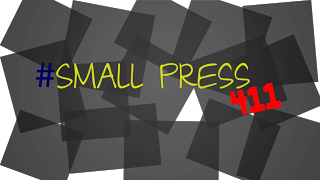Yesterday, I hovered somewhere between amused and annoyed as Twitter reacted to a post (2-5-14: Sorry… post no longer exists) on the Horror Writers of America’s (HWA) LA site titled Ten Questions To Know If You’re A Pro.
Originally, I found the site from a link by John Scalzi along with the comment that he answered no to almost every one of the questions on this list. Intrigued, I took a look for myself. The article itself was a tad off-putting, but not extreme. Then I saw the questions. Honestly, when I read them I kind of thought it was a joke. For reference, I put my answers in brackets.
1. Is your home/work place messy because that time you’d put into cleaning it is better spent writing? [Uh, no? Once my house hits a degree of messiness above mildly disorganized, I clean. no matter what deadline I’m on]
2. Do you routinely turn down evenings out with friends because you need to be home writing instead? [No. Partially because most of my friends live in other parts of the country so they don’t offer nights out all too often for me to turn down, but the answer would remain the same anyway. You won’t have friends soon enough if you never see them]
3. Do you turn off the television in order to write? [TV, yes. But I have to have something in the background. If I’m at home it’s either a movie or music. If I’m out in the world the white noise of conversation around me is enough]
4. Would you rather receive useful criticism than praise? [Yes. This is definitely part of treating your writing professionally]
5. Do you plan vacations around writing opportunities (either research or networking potential)? [No! That is NOT the point of a VACATION]
6. Would you rather be chatting about the business of writing with another writer than exchanging small talk with a good friend? [Nope. I often chat about writing with my friends because they ask how things are going, but I’m equally interested in what’s going on in their non-writing lives]
7. Have you ever taken a day job that paid less money because it would give you more time/energy/material to write? [I haven’t been faced with this choice yet, but depending on the circumstances I might say yes. Especially right now when I have so many writing projects in the works]
8. Are you willing to give up the nice home you know you could have if you devoted that time you spend writing to a more lucrative career? [Really? Way to assume that a) my writing won’t be successful or lucrative and b) that I have an alternative career option that would be better for me. I don’t. It’s not like I can just fall back on my law degree to make money. I don’t have one]
9. Have you done all these things for at least five years? [Uh, yeah? I’ve held all these views for the past five years]
10. Are you willing to live knowing that you will likely never meet your ambitions, but you hold to those ambitions nonetheless? [What?! Look, it’s one thing to continuously give yourself new goals and dreams as you achieve your ambitions, but to live doubting on your own ability to meet ANY of your ambitions? What kind of life is that? Why would anyone want to live like that?!]
If you answer yes to every one of those questions, chances aren’t that your a professional writer. Chances are that you’re on the verge of being committed by concerned family and friends. Or the police are about to bust through your door and find a dark, dingy apartment full of newspaper clippings and scary ramblings pinned to the walls like wallpaper.
Author Brian Keene has already done an in depth discussion of the article on HWA and I suggest reading his post to make yourself feel better about what it means to be a professional. But I do have my own little bit of opinion to tag on to this conversation.
If you want to be a writer, you have to treat your writing professionally. There’s no doubt about that. You have to network and promote and write when you’d rather be doing almost anything else. To make a career out of telling stories, you have to do all of those things. However, never, ever get so sucked into writing that the rest of your life disappears. What are you writing about if not life? If you disappear into your writing cave from the moment you wake up to the moment you go to sleep, you’ll wring yourself dry within a year. Being professional means meeting your deadlines, producing quality work, being considerate to other writers, and collecting money in some form for the books/stories/articles/scripts you create. That’s it. Everything you do in between doesn’t count when asked “Are you a professional writer?”
One of things I love about writing is that there AREN’T RULES. Sure there are grammar rules and storytelling rules and whatever. I’m not talking about that. What I mean is that there aren’t rules for how you have to work to make this writing thing happen. Want to only write one book a year and write it only on the weekends? Go for it. Want to produce three novels, four novellas, and a screen play in twelve months? More power to you if you can manage it without cracking. Enjoy writing while playing Disney movies on loop in the background? Great! Or do you prefer writing with pen and paper in the middle of a forest with not another human in sight? That works too.
One of the fabulous things about this industry is that the HOW doesn’t matter. What you do in between book releases DOESN’T MATTER. The fact that you have book releases? That’s what counts. The only qualification you need to meet to be considered professional is your work. Everything else is meaningless.
/end rant/




